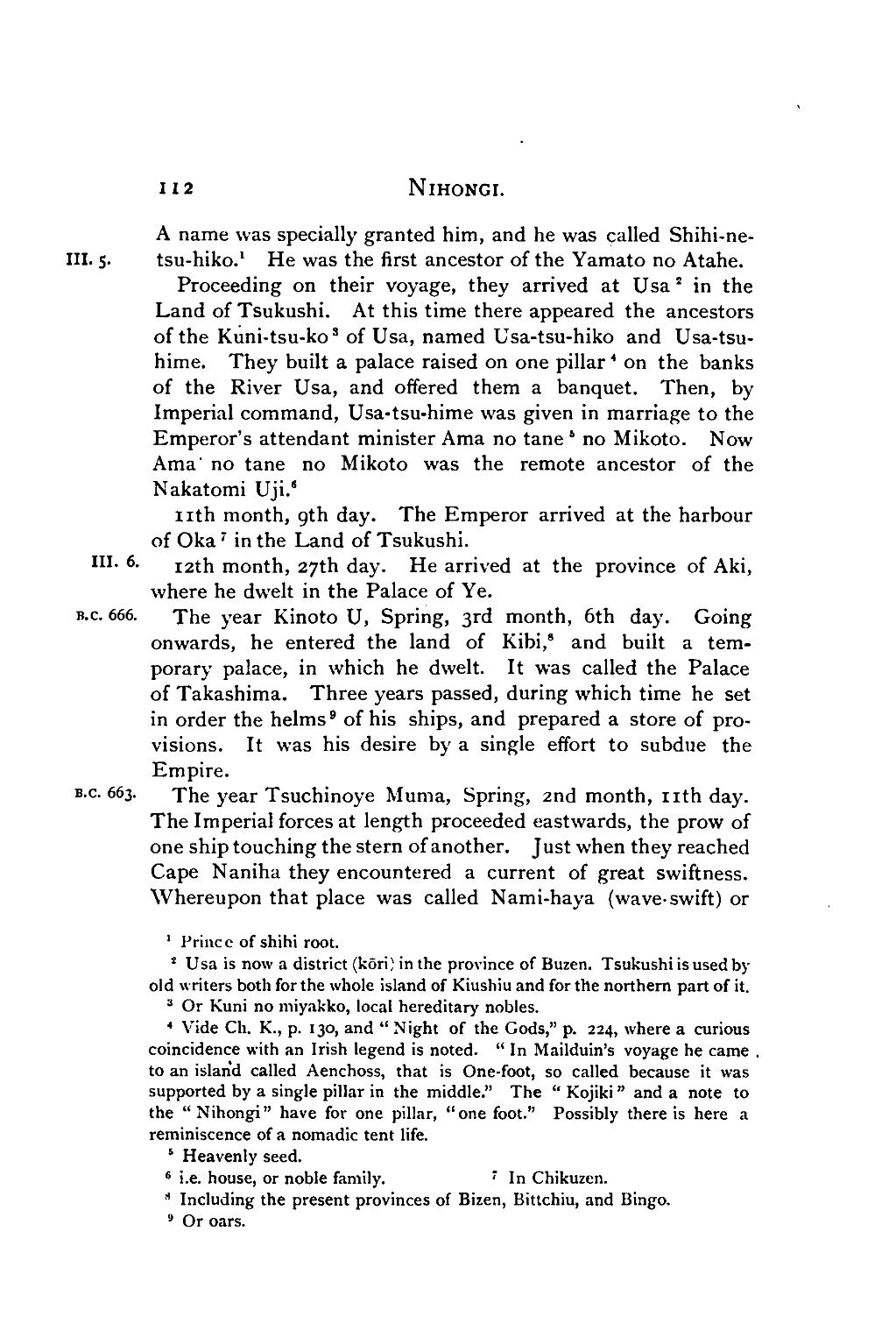A name was specially granted him, and he was called (III. 5.) Shihi-ne-tsu-hiko.[1] He was the first ancestor of the Yamato no Atahe.
Proceeding on their voyage, they arrived at Usa[2] in the Land of Tsukushi. At this time there appeared the ancestors of the Kuni-tsu-ko[3] of Usa, named Usa-tsu-hiko and Usa-tsu-hime. They built a palace raised on one pillar[4] on the banks of the River Usa, and offered them a banquet. Then, by Imperial command, Usa-tsu-hime was given in marriage to the Emperor's attendant minister Ama no tane[5] no Mikoto. Now Ama no tane no Mikoto was the remote ancestor of the Nakatomi Uji.[6]
11th month, 9th day. The Emperor arrived at the harbour of Oka[7] in the Land of Tsukushi.
(III. 6.) 12th month, 27th day. He arrived at the province of Aki, where he dwelt in the Palace of Ye.
B.C. 666. The year Kinoto U, Spring, 3rd month, 6th day. Going onwards, he entered the land of Kibi,[8] and built a temporary palace, in which he dwelt. It was called the Palace of Takashima. Three years passed, during which time he set in order the helms[9] of his ships, and prepared a store of provisions. It was his desire by a single effort to subdue the Empire.
B.C. 663. The year Tsuchinoye Muma, Spring, 2nd month, 11th day. The Imperial forces at length proceeded eastwards, the prow of one ship touching the stern of another. Just when they reached Cape Naniha they encountered a current of great swiftness. Whereupon that place was called Nami-haya (wave-swift) or
- ↑ Prince of shihi root.
- ↑ Usa is now a district (kōri) in the province of Buzen. Tsukushi is used by old writers both for the whole island of Kiushiu and for the northern part of it.
- ↑ Or Kuni no miyakko, local hereditary nobles.
- ↑ Vide Ch. K., p. 130, and "Night of the Gods," p. 224, where a curious coincidence with an Irish legend is noted. "In Mailduin's voyage he came to an island called Aenchoss, that is One-foot, so called because it was supported by a single pillar in the middle." The "Kojiki" and a note to the "Nihongi" have for one pillar, "one foot." Possibly there is here a reminiscence of a nomadic tent life.
- ↑ Heavenly seed.
- ↑ i.e. house, or noble family.
- ↑ In Chikuzen.
- ↑ Including the present provinces of Bizen, Bittchiu, and Bingo.
- ↑ Or oars.
